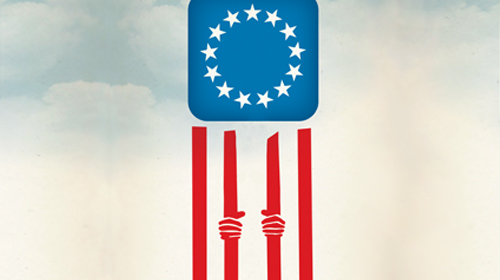The Good, Bad, and Ugly for Religious Liberty and LGBT Rights in Defense Bill


A sure sign of early summer in Washington, besides the sticky, humid air, is the House and Senate Armed Services Committees kicking off the annual process to pass the defense authorization bill – known as the National Defense Authorization Act (NDAA). The bill always touches on a range of important ACLU issues, primarily those at the intersection of national security and civil liberties, and, this year, sexual assault in the military. But, we, as the ACLU lobbyists who focus on freedom of religion and belief and LGBT rights, weren’t left out of this annual summertime rite. Here are a few of the things we saw – good, bad, and ugly.
The Good
The Senate Armed Services Committee-adopted bill includes a provision authored by Sen. Mark Udall (D-Colo.) that would repeal the military’s prohibition on some expressions of private, consensual intimacy (defined in Article 125 of the Uniform Code of Military Justice as “unnatural carnal copulation”) by both opposite-sex and same-sex couples.
This December will mark three years since Congress voted to repeal “Don’t Ask, Don’t Tell.” Lesbian, gay, and bisexual service members now serve openly and with distinction throughout the Armed Forces. To continue labeling, as Article 125 does, the intimate relationships of all gay and lesbian service members, including married couples, a violation of military law is both stigmatizing and discriminatory. If enacted, this provision would move military criminal law in line with both Supreme Court and military court precedent recognizing constitutional guarantees of liberty and privacy.
The Bad
A provision in the House-passed version, authored by Rep. John Fleming (R-La.), could become a dangerous license to discriminate against lesbian, gay, and bisexual service members; women; and religious minorities because it would require the military to accommodate the religious beliefs, actions, and speech of members of the Armed Forces (except in cases of “military necessity”). (It seems that Senators Mike Lee (R-Utah) and Ted Cruz (R-Texas) added similar language during the markup of the NDAA in the Senate Armed Services Committee.) In other words, this provision could let an individual’s religious beliefs override important nondiscrimination protections – possibly giving rise to claims of a right to proselytize other service members as well as civilians in occupied areas and claims affecting health care services or anti-harassment training.
To compound the problem, the provision would tie the hands of commanders – they would be prohibited from responsibly dealing with problems these accommodations may cause unless the accommodations “actually harm” good order and discipline. For instance, it could make it very difficult for commanders to appropriately deal with conduct that undermines longstanding prohibitions against harassment. And by then, it may be too late. Rep. Adam Smith (D-Wash.), the highest-ranking Democrat on the House Armed Services Committee, shares this view, explaining the provision could “make it extraordinarily difficult for the military to do its job and strike the right balance on this issue.”
On top of causing actual harm to service members, unit cohesion, and morale, this provision is unnecessary. All service members’ religious exercise rights are protected already by the First Amendment, federal law, and existing Defense Department regulations. All service members are free to hold their sincerely held religious beliefs and can face no adverse consequences for those beliefs. People of different religious beliefs and none at all, serve together in the military and treat one another with dignity and respect. They all share, and honorably uphold, their duty to protect and defend our nation. But that doesn’t mean religion should be used as a license to harass or discriminate.
The Ugly
Some bad ideas never die. Another provision in the House-passed bill, authored by Rep. Walter Jones (R-N.C.), would allow military chaplains to engage in sectarian and proselytizing prayer at events where service members’ attendance is mandatory. During the House Armed Services Committee’s consideration of the bill, Rep. Susan Davis (D-Calif.) explained why this provision would be deeply problematic: These non-voluntary events are different than worship services that service members voluntarily attend. It’s not appropriate to permit prayer that can be divisive and alienating at non-voluntary events. She is exactly right.
To be clear, military chaplains’ free exercise rights are already protected by the First Amendment, federal law, and Defense Department regulations. When they are conducting their religious services, they may pray according to their faith traditions. But, military chaplains also have a duty to care for all service members and must be willing to serve all personnel even if that means refraining from sectarian and proselytizing prayer when carrying out this duty.
Not only is Rep. Jones’s provision a bad idea – it’s a bad idea that we thought had been put to rest. In 2006, a provision like this held up the defense bill for weeks. The opposition was widespread – ranging from the Baptist Joint Committee for Religious Liberty and Union of Orthodox Jewish Congregations of America to the Defense Department, from military chaplains’ associations to former Sen. John Warner (R-Va.), then chair of the Senate Armed Services Committee. In the end, the provision was stripped out because it was bad for the military and bad for religious freedom. That’s what should happen again this year.
As the NDAA continues to move along in Congress, we’ll be sure to keep you up to speed on these and other important issues in the NDAA that impact religious liberty and LGBT rights.
The authors are, respectively, legislative representative on issues related to LGBT rights and legislative counsel on issues related to religion and belief in the ACLU’s Washington Legislative Office.
Learn more about the NDAA and other civil liberty issues: Sign up for breaking news alerts, follow us on Twitter, and like us on Facebook.


